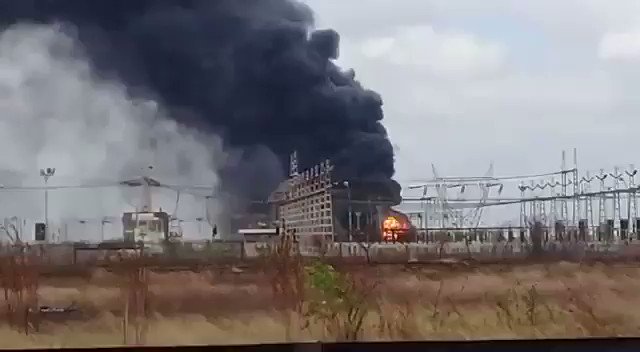Electrical systems in Venezuela have been targeted by another cyberattack, President Nicholas Maduro has said. Caracas has accused the US of “sabotage”, while US officials blame local corruption and mismanagement for the blackout.
After a failure at the Guri hydroelectric power plant left much of the country without power on Thursday night, Venezuelan authorities managed to restore power to “many parts” of the country. However, the country’s grid took another hammering on Saturday, with many of the restored systems knocked out once again, the country’s embattled president said.
According to Maduro, the systems had been nearly 70 percent restored when “we received another attack, of a cybernetic nature, at midday… that disturbed the reconnection process and knocked out everything that had been achieved until noon.”
Additionally, “one of the sources of generation that was working perfectly,” was also sabotaged, he added, accusing domestic “infiltrators of attacking the electric company from the inside.”
Authorities are now trying to restore the systems “manually,” while struggling to “diagnose why the computerized” systems failed on such a massive scale.
Earlier, unconfirmed reports suggested that 95 percent of the crisis-stricken country was again without power, after Sidor Substation in Bolivar state had allegedly exploded, spewing clouds of black smoke into the sky. The substation had reportedly been sustaining the country’s power supply since the Guri plant –which produces 80 percent of the country’s power– failed.

One of Venezuela’s main substations that was keeping electricity flowing is now on fire. Venezuela has lost power on a larger scale than originally on Thursday. All hydroelectric plants in the south are basically useless now#Venezuela
The Venezuelan government blamed Thursday’s blackout on US “sabotage.” President Nicolas Maduro accused Washington of waging an “electricity war” on the socialist state, while communication and information minister Jorge Rodriguez blamed the outage on a US-orchestrated cyberattack.
Meanwhile US officials, including a vocal proponent of regime change in Venezuela, Senator Marco Rubio, blamed the socialist policies of Maduro’s government for letting the country’s infrastructure crumble to breaking point. The Florida Republican claimed that the country’s union of electricity workers had predicted the blackout, accused Maduro of pocketing money that could have been used for repairs, and joked that he “must have pressed the wrong thing on the ‘electronic attack’ app I downloaded from Apple.
Meanwhile, in the darkened streets of Caracas, a power struggle is still playing out between President Maduro and US-backed opposition leader Juan Guaido, who declared himself ‘interim president’ in January. Washington immediately threw its full weight behind Guaido, as did a host of Latin American and EU states. Although the Trump administration admitted this week that it has no particular “timeline” for its desired regime change, the official line from Washington remains “all options are on the table.”
No comments:
Post a Comment